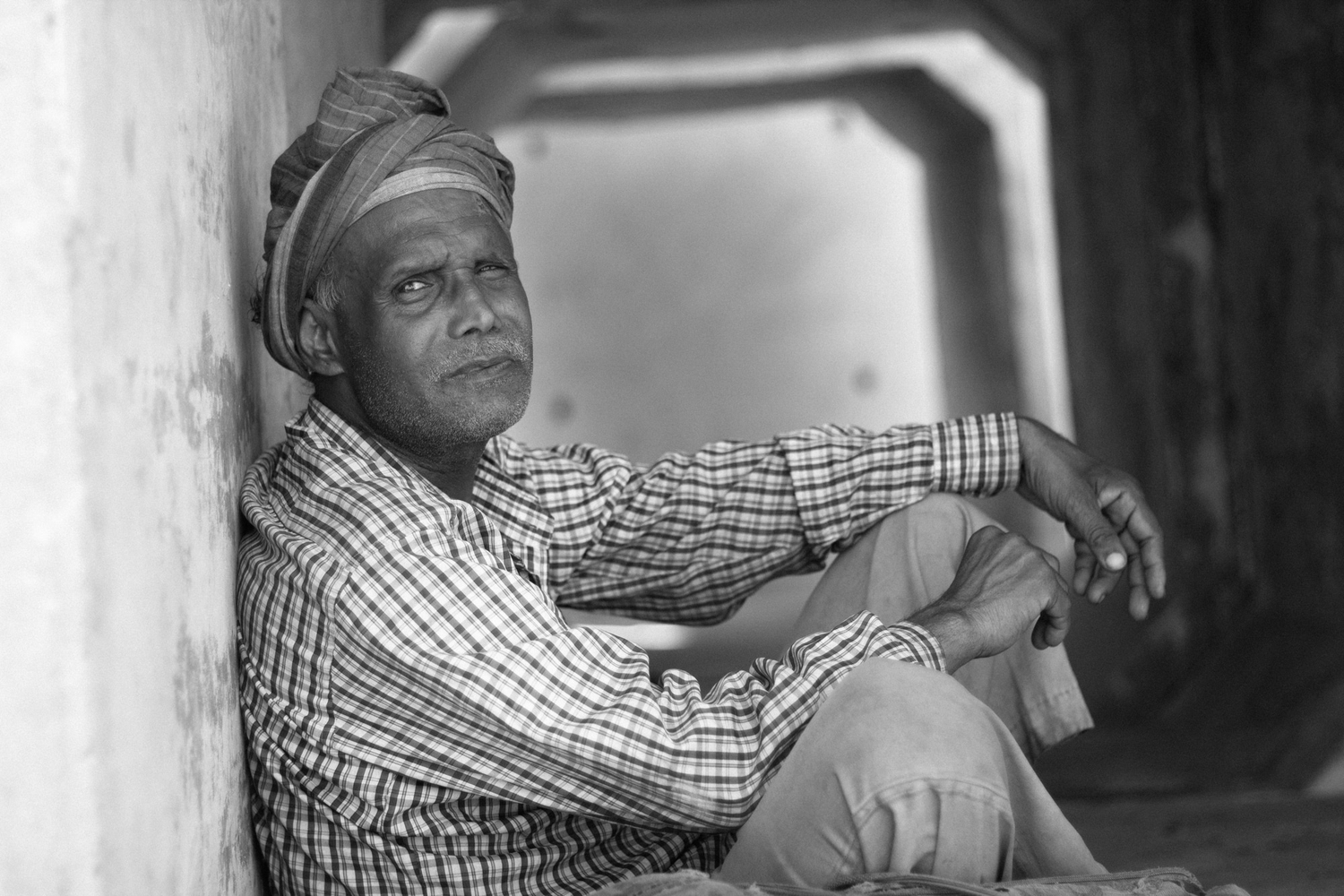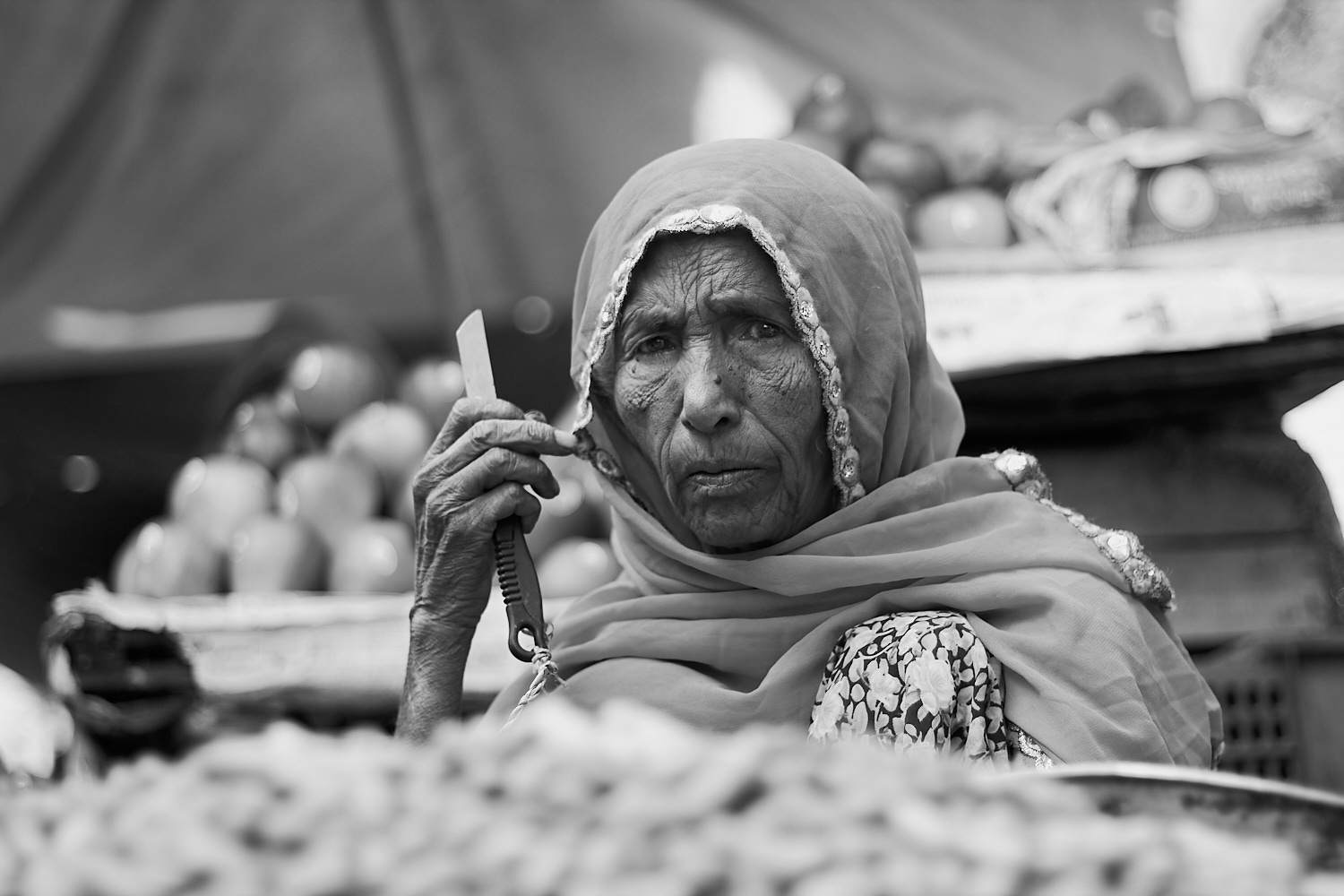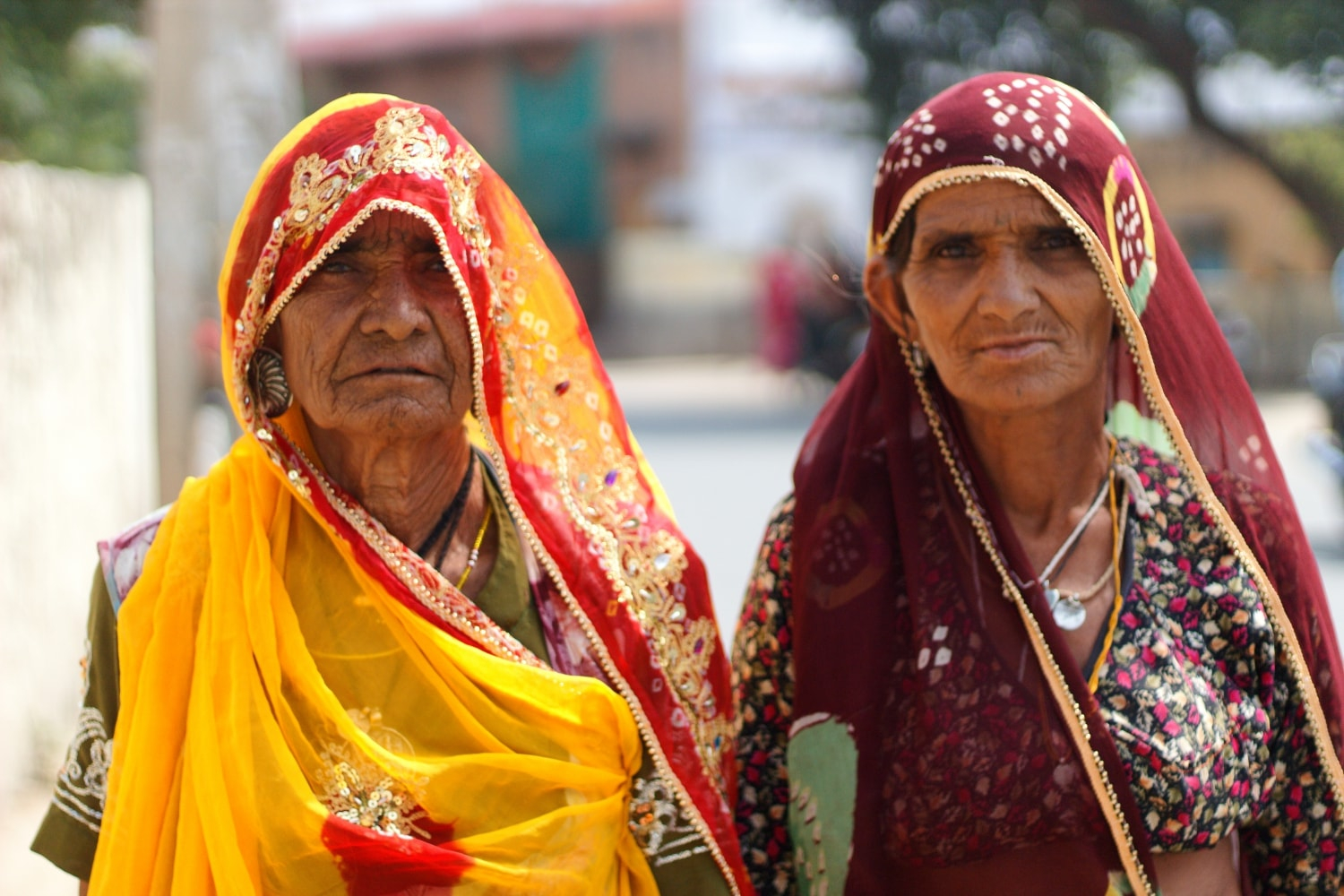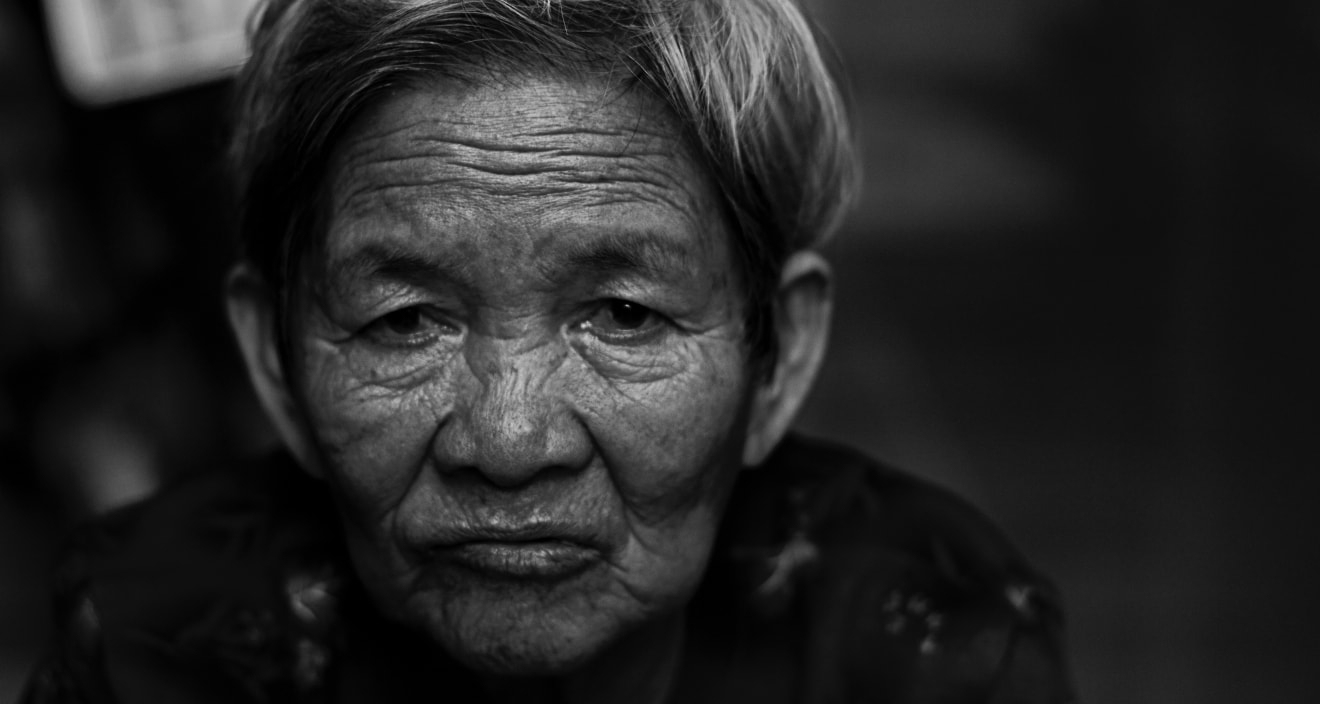“Pack up your troubles in your old kit-bag, and smile, smile, smile.” Lyrics of a popular World War I-era song are repeating in my mind as I sit down to write this article. I was introduced to this song in 2017 by Joe — an Irish friend who runs a resort in Pokhara, Nepal. The song is about leaving your troubles behind and smiling — which is the topic of this article.
The inspirations behind this article were two encounters with strangers during a recent trip to Rajasthan which made me rethink about smile — a beautiful expression that everyone loves to see on a face. These encounters occurred in short span of time on the same day and made me wonder why do we expect people to smile and what gives us the right to label someone as rude or as we call it nowadays — someone with a ‘resting bitch face?’
Photo Story: Smile, Please?
Walking around Ajmer, Rajasthan, I notice a man sitting inside a big concrete sewage pipe reading an old newspaper. I think it would make a nice candid picture and the moment I try to click, he notices me.

“I am taking your picture, if you don’t mind,” I tell him. “Can you smile a little?” I click the first picture and he wouldn’t smile. He just stares at me and I ask him once again to smile. Another picture, still the same. Then I hear him saying something softly and I stop clicking.
I sit with him in the sewage pipe and ask him about himself. He tells me he came from somewhere in Uttar Pradesh and he was thrown out of his house by his brothers following a dispute. He points to a bruise on his face and says he was beaten. “I’m looking for work but I am unable to find any,” he tells me.
“What about your wife and kids?” I ask him. He opens a plastic bag and pulls out a family photograph. His voice breaks down as he talks about his wife and daughters.
“I am sorry to hear about what you are going through,” I tell him. “I am leaving the city this evening. There’s not much I can do, and I don’t have much with me, but you can keep this.”
Genuine happiness is not nearly as common as a fake smile.
Mokokoma Mokhonoana
I pull out whatever money I had in my wallet and tell him it should keep him going for a few days.” He looks at me, hesitantly accepts the money, and returns some to me. “If I have extra, I will end up spending it,” he tells me. I look at him and there’s a moment of silence. I stand up and tell him I will be leaving.
“I hope everything gets better with you,” I say, and leave.

In a similar incident the same day, I am walking through a market where I photograph some street vendors. An old lady catches my attention and I click her picture. She looks at me and I ask her to smile.
Right after clicking the first picture, I notice that the woman is crying. I stop clicking further and ask her what happened. Other vendors around her are laughing saying she “always cried.”
The woman tells me she had two sons. One wouldn’t take care of her and the other one died a few years back. I reminded her of him, she says, with tears still coming off her eyes.
This time I have no words. I stand there speechless, trying to come up with words of condolence, but failing to do so. A few moments later, a kid comes to me and asks me to click his picture – dragging me away from the lady.
Am I Rude Because I Don’t Smile?
Two similar incidents back to back on the same day triggered a set of thoughts in my mind. When we are in the street, we expect people to smile at us. If they don’t smile back, we judge them saying they are rude.
The truth is, we all face hardships of some kind, and you never know the struggles a person is going through. Behind every smile, there’s a story of a personal struggle.
Adrienne C. Moore
What is more rude? Not to smile back at a stranger or to tell some stranger to smile? Why should someone else’s — especially a stranger’s — facial expression matter too much to me? Why do we expect people around us to smile? To make ourselves feel better and more comfortable?
Everyone is facing their own problems at any given moment. Health issues, family issues, financial problems and what not? Why should someone be carrying a smiling and cheering face all the time? A smile is said to be able to trick your brain into feeling happy and they say you should ‘fake it till you make it.’ But can a smile help solve problems? Does a smiling face really mean the person is happy? Or is it simply an illusion someone could be using to hide their pain?
Personally, I have been told that I look rude, annoyed and even angry. I had forgotten how many times I have been told to smile at work or by people who don’t even know me until these encounters with strangers. People who get to know me later tell me that they imagined me to be completely opposite than I actually am — simply judging from my face. Well, sorry to disappoint you, but that’s what my face looks like, I was born with it, just like some people are born with a cheerful face. I can’t fake a smile to keep people from having a wrong idea about me. I smile when I want to, not when I am told to. How simple is that?
Smile When You Want to, Not When You’re Told To
Trouble is, we are lazy and judgmental. We don’t want to waste our time getting to know someone. Even when we ask someone “how are you?” we really are not interested in knowing the real answer. Instead, we expect a mediocre and robotic answer like “I’m fine” or “I’m doing great.” If we really mean to know how someone is doing, we should stop judging from their face and ask “how are you?” like we mean it. If you are actually interested in knowing me, why not come and talk to me?
Smile is a wonderful and beautiful expression. It’s contagious and research has proven that smiling can make you feel happier, lift your mood, lower your stress level, boost your immune system, and could even lead you to live longer.
Yes, I can smile, but it’s so easy to fake it. Yes, I can act like I’m happy, but inside I’m falling apart. Yes, I can pretend like everything is ok, but in reality, I’m broken.
Ester Escalante
I love a smiling face. Everyone does. A smile from a stranger makes me feel good. I feel comfortable around strangers if I see smiling faces around me. Sometimes when there are no words to exchange, a smile can do wonder. A smile from a stranger can also mean the person is welcoming and friendly.
But when I am out in streets doing photography, I want to capture real emotions and stories behind them. Yes, a picture of a smiling person connects better with us than a sad one and I would love it if the subject keeps a smiling face. But I don’t believe in fake expressions. I don’t want people to smile because I smiled at them or because I am taking their picture. I want them to smile because they feel like smiling. The beauty of a wonderful expression such as smile lies in its authenticity, not in faking it.

Is asking people to smile more when they don’t feel like too much to ask for? Will you be able to really flaunt a smile — even a fake one — when you are going through a hard time, say trauma, the loss of a loved one, depression or anxiety? Even if you aren’t going through a hard time, who gives anyone else the right to tell you to smile? Shouldn’t it be your choice whether or not to smile?
What do you think about being asked or told to smile? Do you fake a smile to feel better about yourself or expect others to do the same? Can faking our expressions work in our favour? And if it does, will you fake them?
As I bring this article to the end, another song — तुम इतना जो मुस्कुरा रहे हो, क्या गम है जिसको छुपा रहे हो — is playing in my mind. The song, written by Kaifi Azmi and sung by Jagjit Singh, beautifully captures the pain behind a (fake) smile.
That’s all, folks. This was Parvez and you were reading an article about the expectations of smile. I hope you found this article worth your time and I would like to thank you for reading. May there be more authetic smiles.
Sources:
- Cover photo: Hiep Duong on Unsplash
- Psychology Today
- British Council
- The Atlantic
